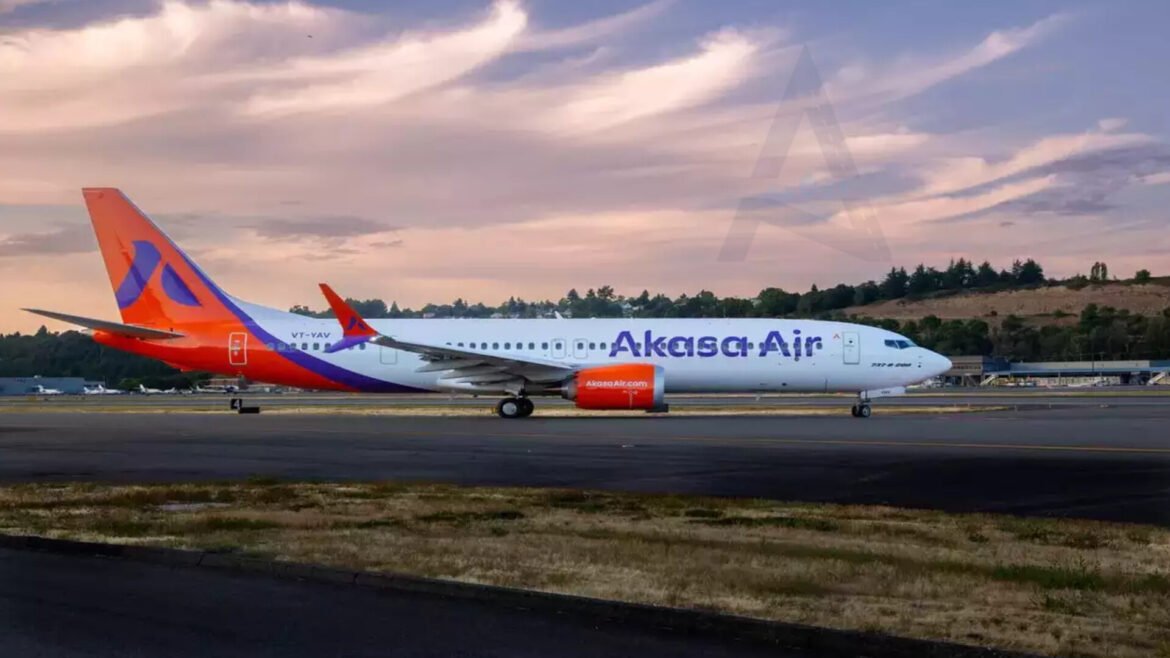The Directorate General of Civil Aviation (DGCA) has ordered corrective training for a senior pilot of Akasa Air following an incident involving a hard landing at Kempegowda International Airport in Bengaluru (BLR) on January 5. The incident, which occurred during the flight’s arrival from Ahmedabad, raised significant safety concerns after the aircraft reportedly made a hard landing on the runway, causing discomfort to passengers and crew. The hard landing is considered a serious aviation safety issue, as it can lead to potential damage to the aircraft and pose risks to the safety and comfort of everyone on board.
The DGCA’s investigation into the incident determined that the senior pilot was primarily at fault, and as a result, the aviation regulator has mandated corrective training to address the pilot’s actions. This training will focus on improving the pilot’s decision-making, landing techniques, and overall handling of emergency situations to ensure better safety practices in future flights. The airline is expected to comply with the DGCA’s order and provide the necessary training to the concerned pilot.
In addition to the training order, the DGCA has also taken other actions in response to the hard landing incident. The regulator has conducted a thorough review of Akasa Air’s safety protocols and internal procedures related to flight operations. It has recommended stricter monitoring and enhancement of pilot training programs to prevent such incidents in the future. While the hard landing did not result in any injuries, the DGCA emphasized that such incidents should not be taken lightly, as they could have serious repercussions if not addressed promptly.
Akasa Air, in a statement, acknowledged the incident and confirmed that the airline is fully cooperating with the DGCA. The airline expressed its commitment to the highest safety standards and stated that it would take all necessary steps to ensure that its pilots and crew are equipped with the skills needed to handle such situations safely. Akasa also assured passengers that it was reviewing its training programs and operational procedures to prevent such events from recurring.
The incident has once again brought attention to the importance of rigorous pilot training and adherence to standard operating procedures in aviation. Aviation experts and industry insiders have stressed that while hard landings can sometimes occur due to various factors, pilots must exercise caution and follow best practices to minimize risk. Airlines, therefore, play a crucial role in maintaining consistent and effective training programs to ensure that their flight crews are prepared for any scenario, especially high-stress situations like a hard landing.
The DGCA’s actions underscore its commitment to ensuring aviation safety in India, reinforcing the need for both airlines and their crews to maintain the highest levels of competency. This incident, while isolated, serves as a reminder of the ongoing need for rigorous safety standards in an industry that is responsible for the safe transportation of millions of passengers each year.

